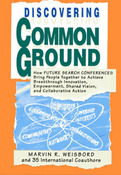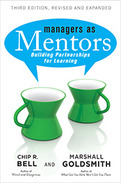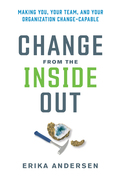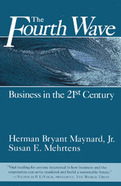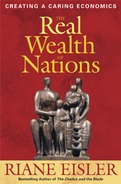This book brings together cases from around the world of a breakthrough new approach to strategic planning, empowerment, consensus building, and whole systems improvement. Marvin Weisbord and 35 international coauthors show how all types of business, government, and nonprofit organizations are successfully using this approach to create shared vision, innovation, commitment, and collaborative action that exceed what people thought possible.
In this approach-called "future searches" or "search conferences"-people with diverse interests who have a stake in an organization or issue come together for two or three days to explore their mutual past, present, and future in a global context. Using a self-managing format, they seek common ground among their varied interests, invent ideal futures rather than work old problems, and generate creative strategies, action plans, and commitment.
- Copublished with Industrial Engineering and Management Press
2013
Augmented with six case studies of some of the top US CEOs. New chapters cover topics such as the role of mentoring in spurring innovation.
- New edition of a classic that has sold 120,000 copies worldwide and been translated into 10 languages
- Now coauthored by bestselling business author Marshall Goldsmith
- Completely revised and updated throughout with twelve new chapters, new tools, and new case studies
Mentoring is more important than ever. Younger workers expect it or they'll walk. Organizations need to provide it to stay competitive. This latest edition of the classic Managers as Mentors is a rapid-fire read that guides leaders in helping associates grow and adapt in today's tumultuous organizations. Thoroughly revised and updated, this edition places increased emphasis on the mentor as a learning catalyst for the protégé rather than as someone who simply hands down knowledge-crucial for younger workers who prize growth opportunities but tend to distrust hierarchy.
As with previous editions, a fictional case study of a mentor-protégé relationship runs through the book. But now this is augmented with six case studies of some of the top US CEOs. New chapters cover topics such as the role of mentoring in spurring innovation and mentoring a diverse and dispersed workforce accustomed to interacting and getting information digitally. Also new to this edition is the Mentor's Toolkit, six resources to help in developing the mentor-protégé relationship.
This hands-on guide takes the mystery out of effective mentoring, teaching leaders to be the kind of confident coaches integral to learning organizations.
Erika Andersen says avoiding change has been a historical imperative. In this book, she shows how we can overcome that reluctance and get good at making necessary change. Using a fictional story about a jewelry business changing generational hands, Andersen lays out a five-step model for addressing both this human side of change and its practical aspects:
Step 1: Clarify the change and why it's needed—Get clear on what the change is and the benefits it will bring.
Step 2: Envision the future state—Build a shared picture of the post-change future.
Step 3: Build the change—Bring together a change team, engage key stakeholders, and plan the change.
Step 4: Lead the transition—Build a transition plan that supports the human side of the change, then engage the whole organization in making the change.
Step 5: Keep the change going—Work to make your organization permanently more change-capable.
With opportunities to self-reflect and try out the ideas and approaches throughout, this book is a practical guide to thriving in this era of nonstop change.
1996
The Fourth Wave examines the ways business has changed in the second and third waves and must continue to change in the fourth. The changes concern the basics-how an institution is organized, how it defines wealth, how it relates to surrounding communities, how it responds to environmental needs, and how it takes part in the political process.
Maynard and Mehrtens foresee a radically different future in which business principles, concern for the environment, personal integrity, and spiritual values are integrated. The authors also demonstrate the need for a new kind of leadership-managers and CEOs who embrace an attitude of global stewardship; who define their assets as ideas, information, creativity, and vision; and who strive for seamless boundaries between work and private lives for all employees.
Applying the concept of historical waves originally propounded by Alvin Toffler in The Third Wave, Herman Maynard and Susan Mehrtens look toward the next century and foresee a "fourth wave," an era of integration and responsibility far beyond Toffler's revolutionary description of third-wave postindustrial society. Whether we attain this stage of global well-being, however, will depend on how well our business institutions adapt and change.
The Fourth Wave examines the ways business has changed in the second and third waves and must continue to change in the fourth. The changes concern the basics-how an institution is organized, how it defines wealth, how it relates to surrounding communities, how it responds to environmental needs, and how it takes part in the political process.
Maynard and Mehrtens foresee a radically different future in which business principles, concern for the environment, personal integrity, and spiritual values are integrated. The authors also demonstrate the need for a new kind of leadership-managers and CEOs who embrace an attitude of global stewardship; who define their assets as ideas, information, creativity, and vision; and who strive for seamless boundaries between work and private lives for all employees.
America faces huge challenges—climate change, social injustice, racist violence, economic insecurity. Journalist Sarah van Gelder suspected that there were solutions, and she went looking for them, not in the centers of power, where people are richly rewarded for their allegiance to the status quo, but off the beaten track, in rural communities, small towns, and neglected urban neighborhoods.
She bought a used pickup truck and camper and set off on a 12,000-mile journey through eighteen states, dozens of cities and towns, and five Indian reservations. From the ranches of Montana to the coalfields of Kentucky to the urban cores of Chicago and Detroit, van Gelder discovered people and communities who are remaking America from the ground up. Join her as she meets the quirky and the committed, the local heroes and the healers who, under the mass media's radar, are getting stuff done. The common thread running through their work was best summed up by a phrase she saw on a mural in Newark: “We the People LOVE This Place.” That connection we each have to our physical and ecological place, and to our human community, is where we find our power and our best hopes for a new America.
- From the author of the bestselling classic The Chalice and the Blade (over 500,000 sold)
- Proposes a dramatic new economic model that could help resolve many of the most critical problems we face today
- Offers concrete steps for putting this model into practice


